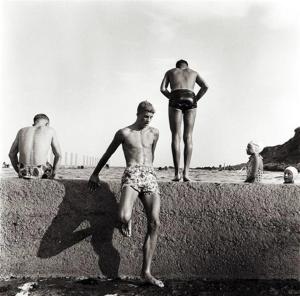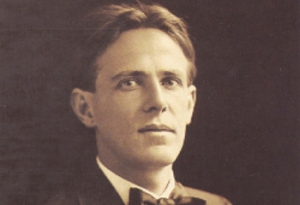Tags
Biblical names, classic names, famous namesakes, fictional namesakes, hebrew names, international name popularity, locational names, name history, name meaning, name popularity, nicknames, popular names, royal names, saints names, UK name popularity, US name popularity
Famous Namesake
Next month marks 226 years since Elizabeth and John Macarthur came to New South Wales on the Second Fleet. From her arrival Elizabeth found herself in a privileged position, for she was the first educated woman to arrive in the colony. Beautiful, tastefully-dressed, charming, witty, articulate, and well-read, she held court among the men of colonial society like a queen. Because of this, she is known as Australia’s First Lady.
When her husband was made Commandment at Parramatta and given land there, he built Elizabeth Farm at Rosehill for them. Originally just a stone cottage, in time the farm became a country estate surrounded by gardens and orchards. While her husband was a politically controversial figure who created chaos and drama wherever he went, Elizabeth transformed their home into an oasis of peace and harmony which even impressed her husband’s numerous enemies.
Elizabeth wrote many letters to family and friends in England, and what strikes the reader is the happiness she managed to create for herself in her new homeland. She loved the climate, and was sensitive to the beauty of the natural landscape, exulting in the way she could grow vegetables, fruit and flowers in rich abundance. She enjoyed the social life of the colony, and with her high spirits and sense of fun, was perennially popular.
After her husband was arrested in 1809 and forced to flee to England, Elizabeth took on the management of John’s extensive merino sheep farm on his estate in Camden, including managing the convict labour force; she is credited with pioneering haymaking in Australia. Elizabeth was a spectacular success in the business, which involved travelling alone through dangerous territory and writing detailed reports for her husband. Together they were a formidable force: John promoting Australian wool in England, while Elizabeth worked hard at producing it.
When her husband returned in 1817, Elizabeth remained important to the Macarthur wool business. Now wealthy and powerful, John built a mansion on the estate in Camden, and descendants of the Macarthurs still live at Camden Park: here also is the Elizabeth Macarthur Agricultural Institute, and nearby Elizabeth Macarthur High School, a selective agricultural high school. Elizabeth Farm, which is one of the oldest colonial dwellings still standing, is now a museum where visitors can move freely and interact with everything on display.
Colonial society was a hotbed of gossip and could be relentlessly critical. Anyone who made the smallest error in appearance or behaviour was mocked and torn down, yet none of this ever touched Elizabeth Macarthur. Contemporaries heap only praise upon her as a devoted wife, perfect mother, accomplished homemaker, and determined businesswoman. She never gossiped, never criticised, and never complained, either of her own workload or the brutality of colonial life.
To the end of her life she remained a lady through and through, combining gentleness and delicacy with a very womanly strength and tenacity. Our First Lady, and our greatest.
Name Information
Elizabeth is from the Greek form of the Hebrew name Elisheba, which can be translated in two ways. One is “God is an oath”, to indicate the power of God’s word – what He swears will be done must come to be. The other is “God is abundance”, to suggest that God always fulfils our needs. Even for a biblical name, Elisheba has a very religious meaning, and in the Old Testament, she is the wife of Aaron, the first High priest, and the mother from whom the priestly caste was born.
The Greek form of the name is used in the Gospel of Luke in the New Testament. Elizabeth was a distant descendant of Aaron, presumably named for her ancestress, and married to Zechariah, who was a priest. The couple had been married for many years and grown old together without ever having the son they longed for.
This is a well-worn plot device in the Bible, so it should come as no surprise that the angel Gabriel brought Zechariah the good news that God had answered their prayers, and Elizabeth was going to have a baby. While pregnant, Elizabeth was visited by a young relative of hers named Mary, from Nazareth, who had received a similar message from Gabriel.
As soon as Mary greeted her, Elizabeth felt the child leap in her womb, and she was moved to hail Mary as “blessed among women” and “the mother of the Lord” (her words used to write the Hail Mary prayer, the basis of Ave Maria). Because of this, she is seen as one of the female prophets.
Elizabeth gave birth to a son, who she named John. He became John the Baptist, the preacher and prophet seen as a forerunner to the ministry of his kinsman Jesus. As a prophet and mother of a prophet, Elizabeth is revered as a saint in Christianity, and given reverence in Islam.
The name Elizabeth has been in use since the Middle Ages, and there are several other saints with the name. The most famous is Elizabeth of Hungary, a 13th century princess famous for her charity. One story told of her is that she was secretly taking bread to the poor when someone demanded to know what she had in her basket. She lifted her cloak, and instead of bread, all that could be seen was a divine vision of roses. This was such a popular act that after this female saints often seemed to cart around miraculous roses as a sign of God’s favour.
Because of the saint’s noble ancestry the name Elizabeth became a favourite among European royalty and aristocracy. It is a traditional name in the British royal family, and Elizabeth I was the last Tudor monarch of England, named after her grandmother Elizabeth of York, the wife of Henry VII. The present queen is Elizabeth II, and she was named after her mother, Elizabeth Bowes-Lyon, wife of George VI. Her name was given to the suburb of Elizabeth in Adelaide.
Thanks to its royal associations Elizabeth has remained popular for centuries, and there are many famous namesakes, such as poet Elizabeth Barrett Browning, novelist Elizabeth Gaskell, feminist Elizabeth Cady Stanton, and actress Elizabeth Taylor. In Australia there is the writer Dame Elizabeth Durack, Sister Elizabeth Kenny who saved so many polio patients, pioneer Elizabeth Underwood who founded Ashfield in Sydney, and speedy athlete Elizabeth “Betty” Cuthbert.
In fiction we know witty Elizabeth Bennet from Pride and Prejudice; shy Elizabeth “Beth” March in Little Women; good-girl twin Elizabeth Wakefield in Sweet Valley High; the mysterious Elizabeth (aka Anna) from Bioshock Infinite; spirited beauty Elizabeth Swann from Pirates of the Caribbean; klutzy Elizabeth “Lizzie” McGuire from the TV series; dainty Elizabeth Grayson from L.M. Montgomery’s Anne Shirley books; and Enid Blyton’s “naughtiest girl” Elizabeth Allen.
Elizabeth is a solid classic which has never left the Top 100; it is the only girl’s name to have achieved this distinction. Elizabeth was #13 in the 1900s, and peaked in 1952 at #10, the year that Elizabeth II ascended the throne, and also a year that she toured Australia. Elizabeth is currently #42 nationally, #45 in New South Wales, #50 in Victoria, #49 in Queensland, #42 in Western Australia, and #25 in the Australian Capital Territory.
In the US, Elizabeth has enjoyed even greater popularity and almost never been out of the Top 25 (in 1948 it reached #26). It was continuously in the Top 10 from the 19th century until the mid 1920s, and rejoined the Top 10 in 1980. Since then it has been in the Top 10 or only just outside it, and is now #13.
In the UK, Elizabeth has never been out of the Top 50. It was a Top 10 name from the mid 19th century until the 1930s, and regained its Top 10 spot in the 1950s when Elizabeth II became queen, but left it again by the following decade. It is currently #37. Elizabeth is popular in all English-speaking countries, and most popular in the United States. It is also popular in Mexico and Latin America.
Elizabeth is that rare creature: a true timeless classic. Held by generations of royalty, it is a name of strength, power, and dignity, while also wholesome, honest, and serious. It is as practical as bread and as pretty as roses, and tells us that every word must bear fruit, every promise must be fulfilled.
There isn’t really any other English name that sounds like Elizabeth: it is both distinguished and distinctive. Furthermore, it has a wealth of nicknames, so that every Elizabeth has the chance to be a Lizzie, a Beth, a Libby, a Birdie, an Ellie, an Elsie, or a Betsy (and that’s just for starters). Hail to thee, Elizabeth, mother of many names!
POLL RESULTS
Elizabeth gained an excellent approval rating of 87%, making it one of the highest-rated names of 2016. People saw the name Elizabeth as classy and elegant (23%), versatile because of its many nicknames (19%), strong yet feminine (17%), and intelligent and professional (15%). However 6% of people thought it was too common and boring. Only one person thought the name Elizabeth sounded snobbish.
(Photo shows the verandah at Elizabeth Farm in Parramatta)










